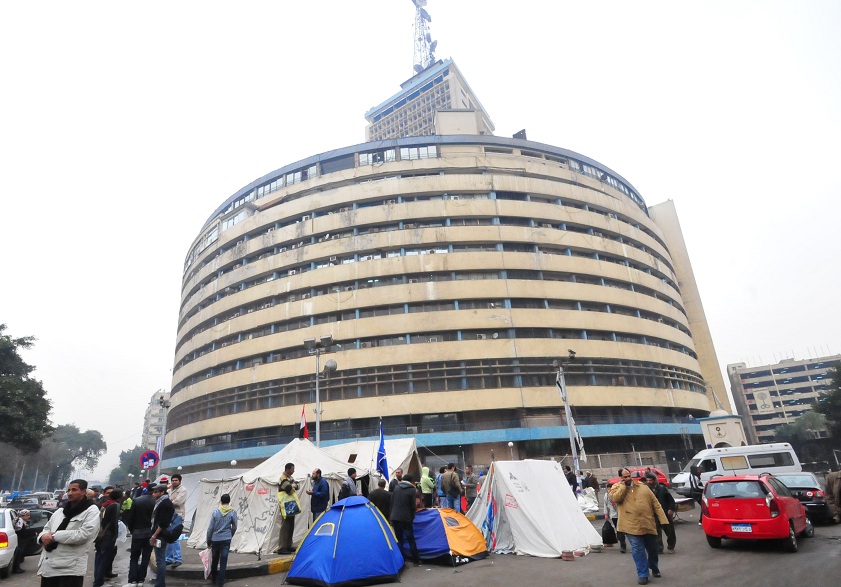State media regulation institutions have been established in Egypt and are expected to play a significant role in shaping media and press in the upcoming period. The state will rely on several major groups to regulate the media: the Press Syndicate, two national councils headed by a supreme council, and the State Information Service.
The Press Syndicate’s leadership was decided by the election of Abdel Mohsen Salama. His affiliation with the government has translated into actions such as bonding with the Ministry of Interior after 10 months of tense relations, and the trial of the former syndicate leaders and journalists’ struggle to demand their rights.
The newly established Supreme Media Council has begun their role as well.
During the past week head of the council, Makram Mohamed Ahmed, made several moves in the press and media field while adopting a pro-state narrative and securing good relations with its senior officials.
This comes after Ahmed sat with President Abdel Fattah Al-Sisi on Thursday, along with the head of the National Press Council and Hussein Zein of the National Media Council, Karam Gabr. Both entities are branches of the Supreme Media Council. The meeting also included Diaa Rashwan, who was appointed on Tuesday as the new head of the State Information Service.
Just one day before meeting with the president, Ahmed announced to local media that he had received a report from the Ministry of Interior, affirming that former Islamist president Mohamed Morsi and the leading members of the terrorist-labeled Muslim Brotherhood were being treated well in prison with respect to human rights laws.
The ministry’s report, Ahmed said, was based off of a request for the council to respond to media reports that claimed the opposite. The council’s alleged focus at the time was to convict members of state-declared terrorist organisations; however, the result included the blockade of more than 20 established news websites, several of which were unproven to have brotherhood affiliations.
Ahmed has also came under fire by a number of journalists after filing a report to the Prosecutor General against journalist Ibrahim Eissa, editor-in-chief of Al-Maqal newspaper.
This comes as the local media reported that a new media ethic code is soon to be implemented by the council. The details of the code remain ambiguous, but it reportedly aims at monitoring media performance that covers “Arab countries’ issues and conflicts.”
According to a presidential statement, Al-Sisi’s instructions to the media included, “updating the public with national and international developments, but also refining public taste while reinforcing social values on top of which are tolerance and acceptance of the other.”
Al-Sisi stressed freedom of expression but within the framework of “not threatening the security and stability of the country and not inciting to violence,” assigning the three councils to monitor the implementation of media international professional standards.


